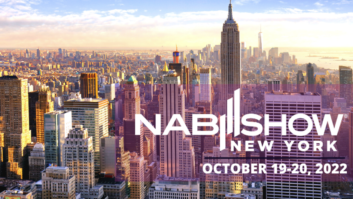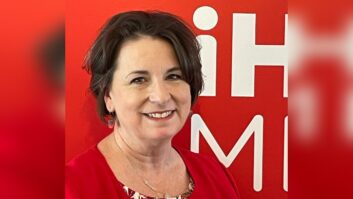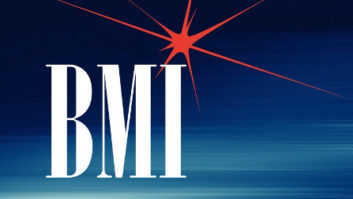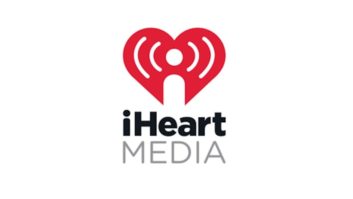iHeartMedia is realigning its business operations by creating two new segments. The media company says it is making the adjustments to better reflect its increased focus on digital and improve visibility into the underlying performances of each segment.
The Mutliplatform Group will include the company’s 860 broadcast radio stations, Premiere Networks and its virtual and live events business. This group accounts for 75 percent of iHeartMedia’s revenue. Greg Ashlock will be its CEO.
The new Digital Audio Group includes podcasting and the company’s digital sites, digital services and digital advertising technology companies, including its pending acquisition Triton Digital. Conal Byrne becomes this group’s CEO.
“The company expects the Digital Audio Group will continue to grow as an increasing proportion of its business in the future,” it stated in its announcement, though it said the Multiplatform Group “remains the foundation business that has been at the heart of the company’s success, playing an important role in building its successful digital and podcasting businesses.
[Related: “For Radio, Audio Is the New Now”]
The divisions will report their financials separately and be run by different management groups, according to an iHeartMedia press release. Both segments will report to Bob Pittman, iHeartMedia chairman and CEO.
A separate Audio & Media Services segment includes Katz Media Group and software provider RCS.
Continued shift
“iHeartMedia is positioned to benefit in the continued shift of the broadcast and digital advertising marketplaces to data infused electronic platforms,” Pittman said during an earnings call Thursday.
The company reported fourth quarter 2020 revenue of $936 million on Thursday, a decline of 8.8% from a year earlier. It says it quarterly revenue deficits are narrowing as skittish advertisers return and the COVID-19 pandemic eases in parts of the United States. iHeartMedia previously reported a drop of 22% in revenue for Q3 2020 year-to-year.
iHeartMedia’s broadcast specific revenue was down 19% in Q4 2020 and down 26% excluding political, according to the financial report filed with the U.S. Securities and Exchange Commission.
The company reported significant political advertising, totaling $168 million for the year, its best year on record. Digital continues to standout for iHeartMedia, according to Pittman. Growth in digital the final quarter of 2020 was 53% year over year, according to the company’s filing with the report.
For the year, the pandemic caused a significant decline in revenue of nearly 20% compared to 2019. Total revenue was $2.9 billion in 2020 compared to nearly $3.7 billion in annual results the year prior.
Pittman said the company hopes to return to 2019 revenue levels by the end of this year but a lot depends on the rollout of the COVID-19 vaccines and the return of more advertisers.
Corporate expenses decreased 23.8% in 2020 compared to the year prior, according to the iHeartMedia SEC filing, resulting from cost reduction initiatives that resulted in lower employee compensation. In addition, the company’s modernization efforts delivered $50 million of in-year savings in 2020.
“The total operating expense savings resulting from our modernization initiatives and the operating cost savings initiatives that were developed in response to the impact from the COVID-19 pandemic generated approximately $250 million of cost reductions in 2020,” according to the financial statement.
COVID-19 takes its share
Pittman on Thursday’s earnings call said: “Like every ad supported business we were hit by the pandemic. We responded quickly to the downturn and used this to speed up our adoption of new technologies and best practices while making lasting changes to our company’s operating structure.”
The company said it will continue to centralize resources into what it calls Centers of Excellence.
The company’s capital expenditures for the year 2020 were $85.2 million compared to $112.2 million in 2019. Those capital expenditures last year consisted primarily of investments in its programmatic platforms and IT software and infrastructure, according to the company’s SEC filing.
The company is more optimistic about spending as it projects cap ex of $165 million to $185 million in 2021.
iHeartMedia’s fourth quarter results fell in line with most of the mega radio group owners in this country. Entercom reported earlier this week its 2020 revenues in the quarter fell 23 percent year-to-year. Cumulus Media fared a bit better reporting fourth quarter revenues in 2020 declined 13.1 percent compared to a year earlier.
iHeartMedia President/COO/CFO Rich Bressler said during Thursday earnings call the company projects “its first quarter 2021 revenue will be down 11 to 13 percent when compared to the year prior.”
The biggest commercial radio operator in the United States — which has been acquiring audio technology companies in the past couple of years and just announced the planned purchase of audio measurement company Triton Digital for $230 million in February — failed to make a significant dent in its overall debt in the quarter, according to the SEC filing.
As of Dec. 31, 2020, the company had just over $6 billion in total debt, virtually unchanged from the end of September.
Honeycomb investment
Also in February, Honeycomb Investments Ltd., an investment vehicle funded by Global Radio investor Michael Tabor, announced it had taken an 8.8% share in iHeartMedia, according to SEC filings. Honeycomb’s investors own Global, the largest radio and outdoor advertising company in the UK.
The investment totaled $117.6 million, according to several reports. Just last year the FCC gave approval to iHeartMedia’s petition to increase its foreign ownership beyond the 25% limit.
In its 10K annual report to the SEC filed Thursday, iHeartMedia said: “Honeycomb filed a Schedule 13D with the SEC reporting ownership of more than 5% of our voting stock and equity. Honeycomb acquired its interest without our knowledge or control, and we are fulfilling our obligations under the Declaratory Ruling and the FCC rules with respect to Honeycomb’s interest.”










